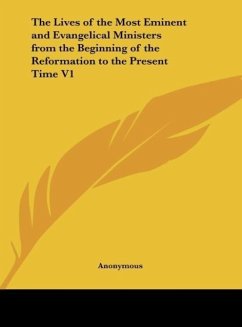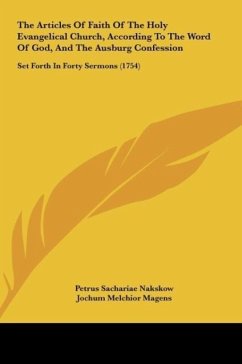1818. This work presents a collection of sketches from authentic historians on the lives of the most eminent and evangelical ministers from the beginning of the Reformation to the present time, comprising their most remarkable actions and sufferings, exhibiting the unity of their faith and experience, and illustrating the power of divine grace in the holy living and dying. Due to the age and scarcity of the original we reproduced, some pages may be spotty, faded or difficult to read.
Hinweis: Dieser Artikel kann nur an eine deutsche Lieferadresse ausgeliefert werden.
Hinweis: Dieser Artikel kann nur an eine deutsche Lieferadresse ausgeliefert werden.








